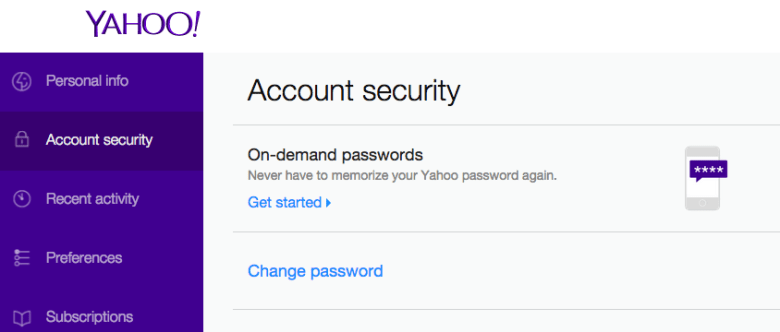Yahoo today announced the launch of a new security feature. Yahoo On-Demand passwords are currently available in the United States. The new feature will allow you to log in to your account every time with a unique code that Yahoo will send to your mobile.
From today anyone who connects to Internet with a US IP may have on-demand password options depending on their Yahoo account settings.
The characteristic Yahoo On-Demand Passwords can be used in other countries, provided that you use a VPN or a mediation server. There are reports stating that the company is sending SMS messages that contain passwords outside of the US as long as the IP you used to sign in to your account is from the US.
For the average user, the Yahoo On-Demand Passwords feature can improve security. It protects not only weak passwords selected by the user but also when phishing passwords are stolen.
Οι έμπειροι χρήστες από την άλλη, μάλλον δεν θα επωφεληθούν και τόσο από το νέο χαρακτηριστικό. Εάν κάποιος έχει επιλέξει ήδη έναν ασφαλή κωδικό σύνδεσης, και χρησιμοποιεί κάποια εφαρμογή διαχείρισης κωδικών πρόσβασης, αλλά και τον έλεγχο identity two factors, then Yahoo's on-demand solution isn't all that revolutionary.
In conclusion, Yahoo's On-Demand passwords are a convenient solution for users who do not want to do much about Internet security. Installation is relatively easy, and right afterwards, you can consider yourself protected from many common Internet threats. It may be necessary, however, to create passwords for application accounts that do not support the new login feature.





